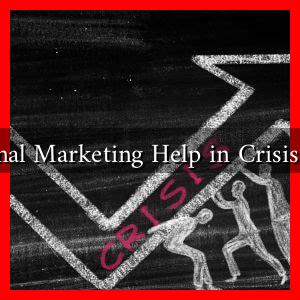-
Table of Contents
- Does Emotional Marketing Help in Crisis Management?
- Understanding Emotional Marketing
- The Role of Emotional Marketing in Crisis Management
- Case Studies: Successful Use of Emotional Marketing in Crisis Management
- 1. Johnson & Johnson’s Tylenol Crisis
- 2. Dove’s Real Beauty Campaign
- Statistics Supporting Emotional Marketing in Crisis Management
- Strategies for Implementing Emotional Marketing in Crisis Management
- Conclusion
Does Emotional Marketing Help in Crisis Management?
In today’s fast-paced digital world, brands are often faced with crises that can threaten their reputation and customer trust. Whether it’s a public relations disaster, a product recall, or a social media backlash, how a company responds can significantly impact its long-term success. One strategy that has gained traction in recent years is emotional marketing. But does it really help in crisis management? This article explores the intersection of emotional marketing and crisis management, providing insights, examples, and strategies for brands navigating turbulent waters.
Understanding Emotional Marketing
Emotional marketing is a strategy that aims to connect with consumers on a deeper emotional level. By appealing to feelings such as happiness, sadness, fear, or nostalgia, brands can create a more profound connection with their audience. This approach can be particularly effective during crises, as it allows companies to humanize their brand and foster empathy.
The Role of Emotional Marketing in Crisis Management
During a crisis, the primary goal of any brand should be to maintain trust and transparency with its audience. Emotional marketing can play a crucial role in achieving this goal by:
- Building Empathy: By sharing heartfelt stories or acknowledging the emotional impact of a crisis, brands can foster a sense of understanding and connection with their audience.
- Reinforcing Brand Values: Emotional marketing allows brands to communicate their core values, demonstrating their commitment to social responsibility and customer care.
- Encouraging Loyalty: When consumers feel emotionally connected to a brand, they are more likely to remain loyal, even in the face of adversity.
Case Studies: Successful Use of Emotional Marketing in Crisis Management
Several brands have effectively utilized emotional marketing during crises, showcasing its potential benefits:
1. Johnson & Johnson’s Tylenol Crisis
In 1982, Johnson & Johnson faced a major crisis when several people died after consuming cyanide-laced Tylenol capsules. The company’s response was swift and empathetic. They immediately recalled 31 million bottles of Tylenol and launched a campaign emphasizing consumer safety. By prioritizing public health over profits and communicating transparently, Johnson & Johnson not only salvaged its reputation but also reinforced its commitment to customer safety.
2. Dove’s Real Beauty Campaign
Dove has consistently used emotional marketing to promote its brand values, particularly during times of social upheaval. The “Real Beauty” campaign, which celebrates diversity and self-acceptance, resonated deeply with consumers. During crises related to body image and self-esteem, Dove’s messaging has provided a comforting and empowering narrative, helping the brand maintain a loyal customer base.
Statistics Supporting Emotional Marketing in Crisis Management
Research indicates that emotional marketing can significantly impact consumer behavior:
- According to a study by the American Marketing Association, emotionally charged ads can lead to a 23% increase in sales compared to non-emotional ads.
- A survey by HubSpot found that 55% of consumers are more likely to purchase from brands that share their values, especially during crises.
Strategies for Implementing Emotional Marketing in Crisis Management
To effectively leverage emotional marketing during a crisis, brands should consider the following strategies:
- Be Authentic: Authenticity is key. Brands should communicate honestly and transparently about the crisis and their response.
- Share Personal Stories: Highlighting real stories from customers or employees can create a more relatable narrative.
- Engage on Social Media: Use social media platforms to connect with your audience, respond to concerns, and share updates in real-time.
Conclusion
Emotional marketing can be a powerful tool in crisis management, helping brands to build empathy, reinforce their values, and encourage customer loyalty. By understanding the emotional landscape of their audience and responding authentically, companies can navigate crises more effectively. As demonstrated by successful case studies, the ability to connect on an emotional level can turn a potential disaster into an opportunity for growth and strengthened relationships with consumers. In an era where trust is paramount, emotional marketing may very well be the lifeline brands need during turbulent times.

